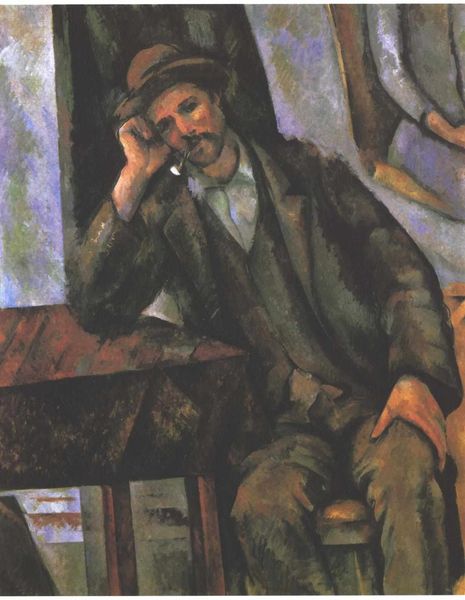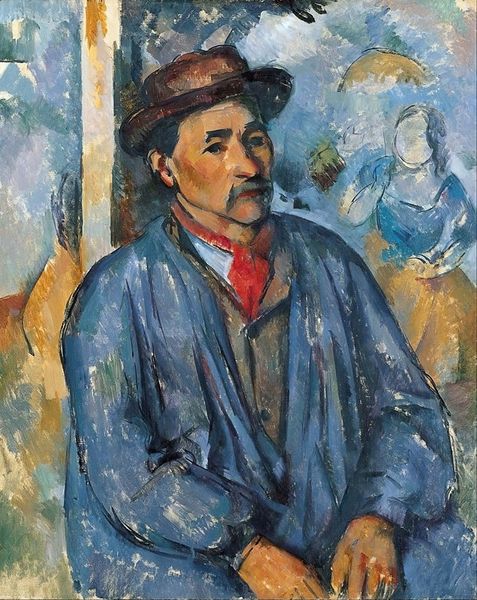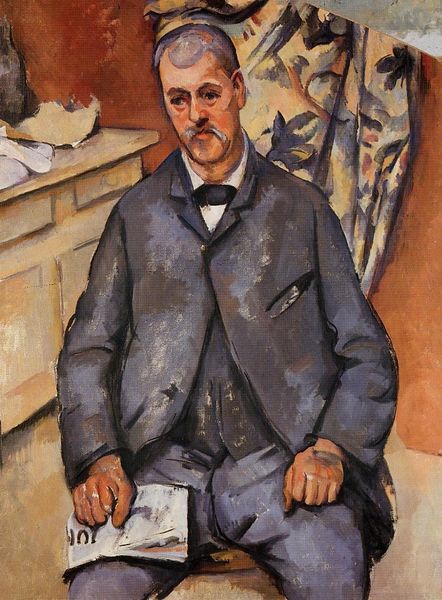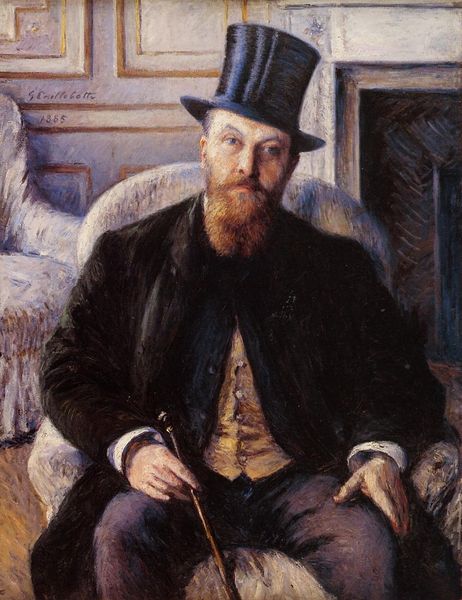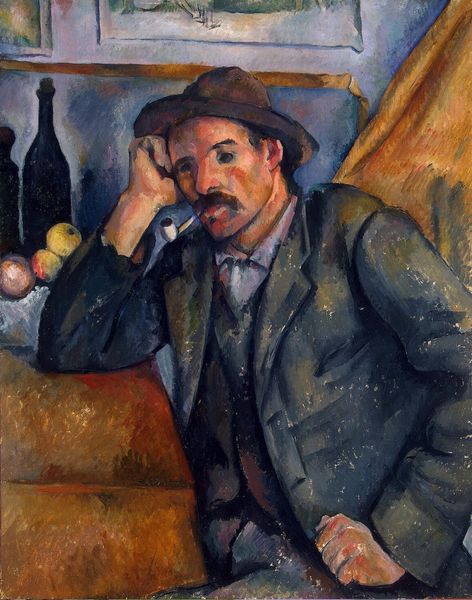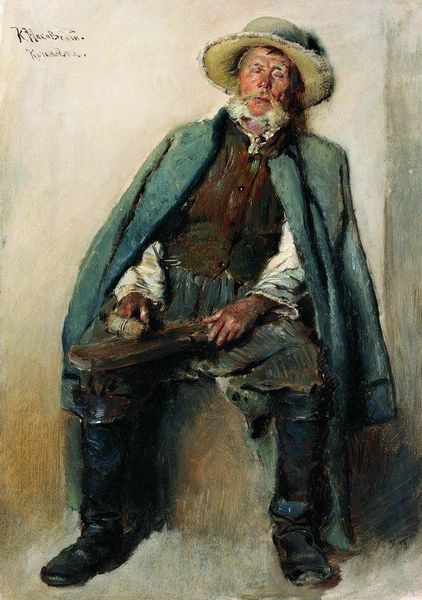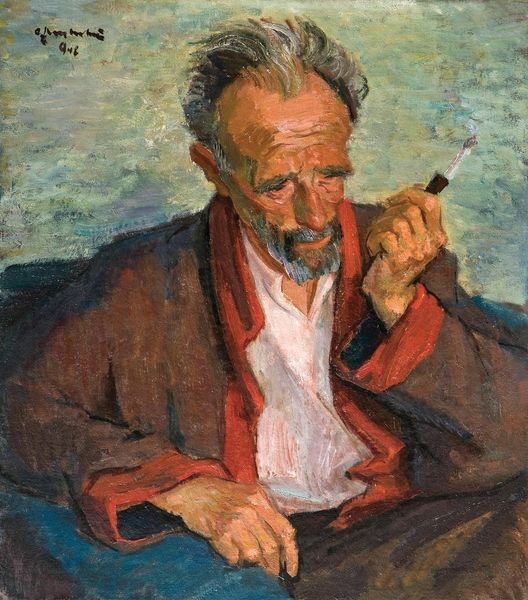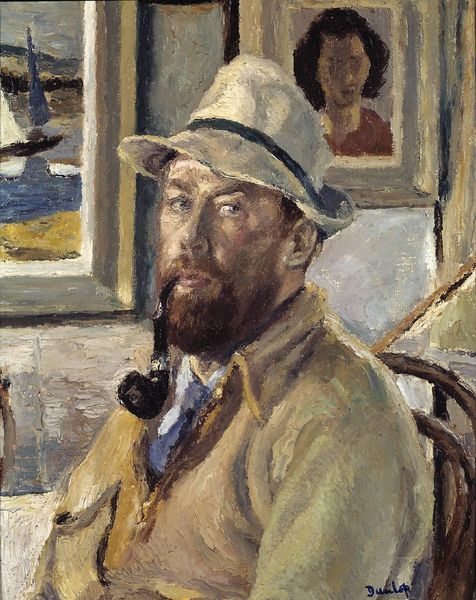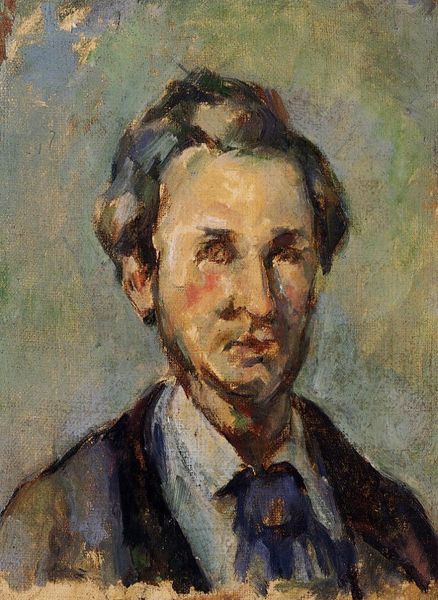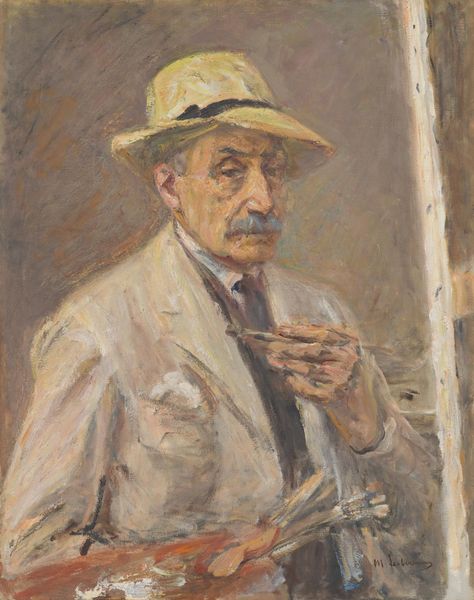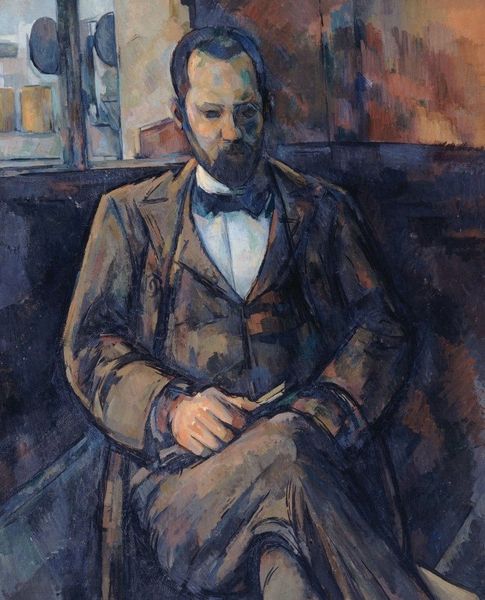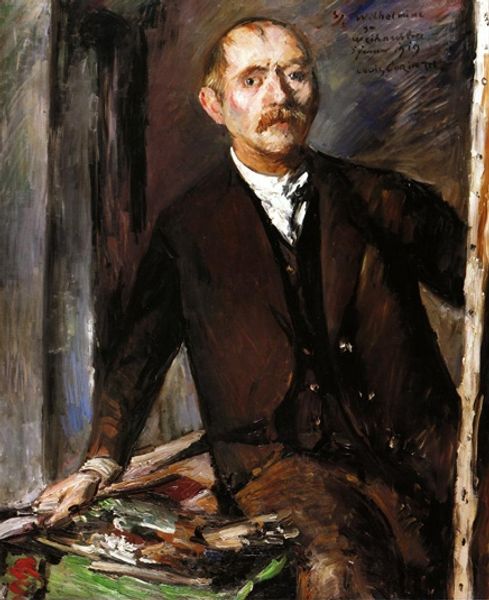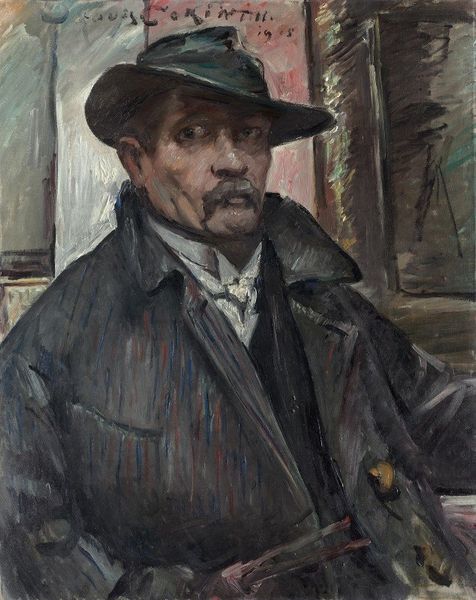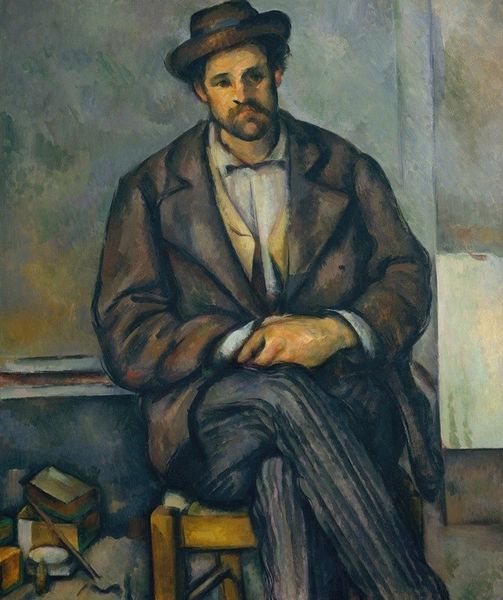
painting, oil-paint, impasto
#
painting
#
oil-paint
#
oil painting
#
impasto
#
genre-painting
#
post-impressionism
#
modernism
Copyright: Public domain
Paul Cézanne painted ‘Smoker’ in France sometime during the late 19th or early 20th century. Cézanne elevates a commonplace subject to the status of art. In post-revolution France, the depiction of working-class figures became more common, reflecting a shift in social consciousness and the rise of Realism in art. ‘Smoker’ shares the characteristics of Realist painting, but in comparison to other French Realists, such as Courbet and Manet, Cézanne was not overtly political in his choice of subject. Rather than critiquing the social structure of his time, he was primarily concerned with pushing the boundaries of artistic representation, using formal techniques to explore the nature of perception and representation. Historians study works such as this by reading exhibition reviews, personal letters of artists, and other period documents, to better understand their place in a particular moment of cultural history. As we can see, the meaning of ‘Smoker’ resides in its social and institutional context as much as in its visual form.
Comments
No comments
Be the first to comment and join the conversation on the ultimate creative platform.
